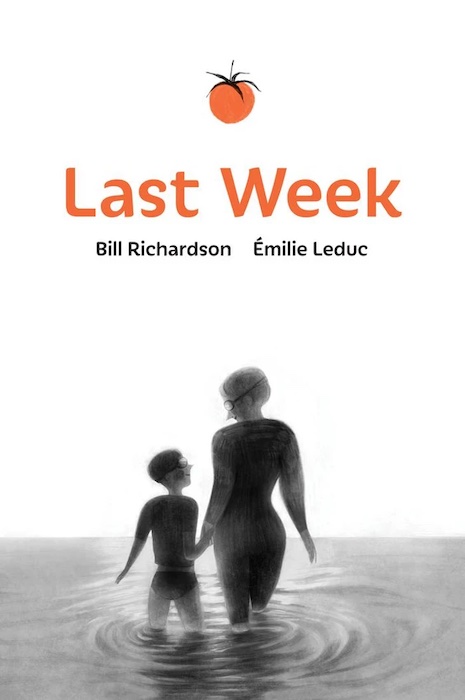“As it becomes more common it is going to be something kids are exposed to and that they think about and their parents will talk to them about it. … So that was all I was thinking about. What this might be like for a kid.” — Bill Richardson

By Dana Gee
In 2020, 7,595 cases of medical assistance in dying (MAID) were registered in Canada, up almost 35 per cent from the year before.
As medically assisted death becomes more common it only makes sense that more and more children are going to have to deal with it. That reality is at the heart of former broadcaster Bill Richardson’s new children’s book Last Week. Illustrated by Emilie Leduc, Last Week tells the story of a death with dignity through the eyes of a child.
In this case the child counts down, literally, the last seven days of their grandmother’s life.
“I lay awake. I did the math. In four hundred and thirty-two thousand seconds, this last week will be over,” says the child as they reflect at the end of the second day.
“As it becomes more common it is going to be something kids are exposed to and that they think about and their parents will talk to them about it,” said Richardson during a recent phone interview. “Their grandparents will talk to them or whoever the recipient of the medical assisted death will talk to them. So that was all I was thinking about. What this might be like for a kid.”
While he wasn’t trying to “be comprehensive,” Richardson does deliver a lovely and clear look at what mourning can look like when someone has chosen this route. The book’s afterword is by MAID pioneer Dr. Stefanie Green the co-founder and president of the Canadian Association of MAID Assessors and Providers.“My connection to this is really via my partner, whose name is Bill Pechet. Bill’s mother Judy, in 2016, chose a medically assisted death and she was an amazing person. She was very vibrant,” said Richardson. “She was 92 when she died, and she had great, great, great clarity of mind and her body was giving up and she made this informed decision.”Richardson noticed that friends and family came and stayed and hung out in the days prior to Judy’s death.
“It changes the way we mourn,” said Richardson. “I was deeply, deeply touched by watching Judy receive these people to the very end of her life. She had always been a warm hospitable gregarious, welcoming, social, intelligent, articulate person who really valued contact. Who adored her family and who loved conversation.“So, people sat around, and they talked, and they talked, and they talked, and they laughed, and they laughed, and they laughed and told stories and they eat, and they eat, and they eat. And then it was done. I just thought what a great thing.”This is what the child in Last Week witnesses and clocks. They realize their Flippa — nicknamed so because she walked to the beach for her daily swim in a wetsuit and flippers like a real-life West End neighbour of Richardson’s did — was loved and cherished. Stories were told, hands were squeezed, and hugs were delivered and most importantly there was laughter.
This book is Richardson’s eighth for kids. The former CBC Radio host started out writing for adults but soon found his way into a familiar zone.“I was writing for adult audiences then someone asked me if I wanted to write for children,” said Richardson. “My first job as a grown-up person was back in 1980 working as a children’s librarian. I spent about five or six years kind of immersed in that world. I knew the literature. I kept track of it a little bit after. I know more or less what is going on.”Richardson wrote this book in a single sitting, but he didn’t go in with the plan to use counting as story engine.
“I didn’t know what it was going to be until I came to the end. I wondered why the counting structure. Why has this child settled on this way to kind of frame what’s going on? And then I began to realize in numbers there is a kind of comfort that is something that is quantifiable. It is also relentless and unstoppable,” said Richardson.
While the death of a loved one anchors this story it isn’t depressing. Watching the child watch the things going on around their grandmother’s exit is a reminder of a full life, a life that was shared.
It certainly is a book about coming to terms with grief, but it is also very much a book about love.
Complete Article ↪HERE↩!
